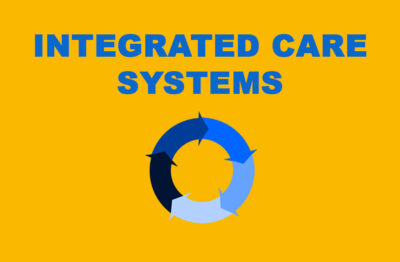[This motion can be downloaded as a Word document]
Oppose Integrated Care Systems in the English NHS
Motion by: [Name of Union Branch]
Date proposed: [Date]
This branch notes:
- While attention is focused on Covid, the NHS in England is being rapidly reorganised into 42 regional Integrated Care Systems (ICSs). This will strengthen the role of private companies, including US health insurance corporations, in clinical services and management of the NHS. ICSs will mean more private contracts, more down-skilling and outsourcing of NHS jobs, reduced services and significant spending cuts.
- The Government plans new legislation to turn ICSs into legal bodies. Their February 2021 White Paper “Integration and Innovation” is based on NHS England proposals, derived from a US model which aims to spend less on care.
- ICSs will have fixed annual budgets based on area-wide targets, rather than providing the care needed by the individuals who live there.
- NHS England has accredited 83 corporations and businesses, including 22 from the US, to help develop ICSs. The White Paper will allow private companies to sit on both tiers of the ICS Board: an NHS body including representation from a local authority and open to unspecified others, and a Health and Care Partnership including independent sector partners and social care providers.
- ICSs will sideline local authorities, threatening the future integrity of social care and reducing local accountability to elected Councillors, let alone patients and NHS staff.
- NHS providers will be bound to a plan written by the ICS Board and to financial controls linked to that plan.
- Procurement will be streamlined, eliminating safeguards for compliance with environmental, social and labour laws and the ability to reject bidders with poor track records.
- The White Paper proposes that unspecified NHS roles currently covered by professional regulation could be deregulated in future due to changing technology.
- NHS England proposes agile and flexible working with staff deployed at different sites and organisations across and beyond the system.
- NHS England calls for most NHS funding to be delivered through a fixed block payment, based on the costs of the ICS system plan, whose value is determined locally. Local funding levels could threaten national agreements on wages, terms and conditions. Local pay could lead staff to leave areas where funding is cut, further reducing care.
This branch believes:
- Integrated Care Systems threaten patient care, jobs, pay, working conditions and the integrity of the NHS as a public service. We oppose them.
- After 30 years of marketisation, it is time to restore the NHS to a fully accountable, publicly run service, free to all at the point of use. As unanimously adopted at Labour Party Conference in 2017, full scale repeal of the 2012 Health & Social Care Act and new legislation for a universal, comprehensive and publicly provided NHS are required.
- We need a separate, collaborative, publicly funded Social Care Service.
- Genuine integration based on the wider determinants of health, such as housing, involves more input from local authorities not less.
- This Branch resolves:
- To immediately report these threats to the NHS and social care, to appropriate Union structures and to find out what action the Union is taking.
- To press the Union to take urgent action, including using its influence with other unions, the Government and opposition parties, based on the following demands:
- An immediate halt to the rollout of ICSs.
- An extended and meaningful consultation with the public and Parliament to decide how health and social care services are provided in England.
- The introduction of legislation to bring about a universal, comprehensive and publicly provided NHS, free at the point of use and fit for the 21st century.
- New technology must be used to improve patient care, not to deskill or replace or performance manage staff, or to deprive patients of face-to-face interaction with clinicians and other care staff that they may want or need.






